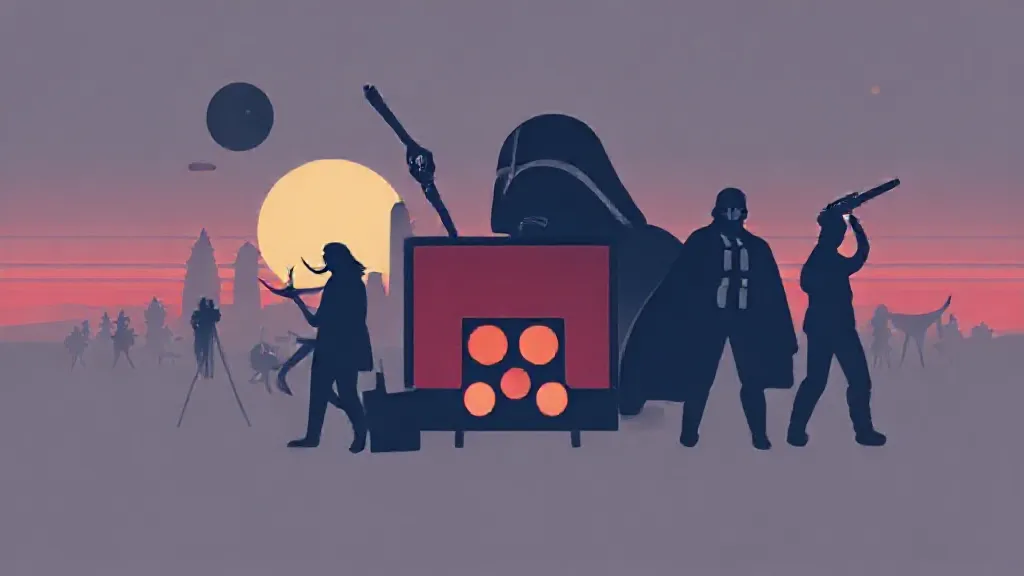In the ever-evolving landscape of entertainment, remakes and reboots have become ubiquitous, igniting passionate debates among audiences and critics alike. This phenomenon raises a crucial question: why do these reimagined works often spark controversy? The answer lies in a complex interplay of nostalgia, creativity, and cultural significance, which we will explore in depth.
The Nostalgia Factor
One of the primary reasons remakes and reboots generate controversy is the powerful role of nostalgia.
Many viewers have a deep emotional connection to the original works, whether they are films, television shows, or video games. This attachment can lead to heightened expectations for the new versions, which often struggle to live up to the beloved originals. For instance, the 2016 reboot of "Ghostbusters" faced significant backlash from fans of the original 1984 film, who felt that the new iteration did not capture the same spirit and humor.
This nostalgia can create a barrier to acceptance, as audiences often resist change, preferring the comfort of familiar narratives and characters.
The Creativity Debate
Another point of contention surrounding remakes and reboots is the perception that they signify a lack of creativity in the entertainment industry. Critics argue that the prevalence of these projects indicates a reluctance to invest in original storytelling, as studios often prioritize established franchises over new ideas.
This sentiment was particularly evident with Disney's live-action adaptations of animated classics, such as "The Lion King" and "Aladdin." While these films achieved commercial success, many critics lamented that they did not bring anything new to the table, merely rehashing existing stories with updated visuals. This raises the question: are remakes simply cash grabs, or can they offer fresh perspectives on familiar tales?
Cultural Significance and Representation
Remakes and reboots also provoke discussions about cultural significance and representation.
As society evolves, so do the narratives we tell. A remake can be an opportunity to recontextualize a story for a modern audience, addressing issues of diversity and representation that may have been overlooked in the original. For example, the 2020 adaptation of "West Side Story" sought to bring a more authentic portrayal of its Puerto Rican characters, reflecting contemporary discussions about race and identity.
However, this can lead to controversy if audiences feel that the new interpretation strays too far from the original or alters beloved elements.
The Role of Fan Expectations
Fan expectations play a significant role in the controversy surrounding remakes and reboots. The rise of social media has amplified these voices, allowing fans to express their opinions and concerns more vocally than ever before.
This phenomenon can create a toxic environment, where negativity surrounding a project can overshadow its merits. The backlash against the "Star Wars" sequel trilogy illustrates this point, as passionate fans took to platforms like Twitter to voice their dissatisfaction, leading to a divisive atmosphere within the fan community. This dynamic raises important questions about the impact of fan culture on creative processes.
The Business Perspective
From a business standpoint, remakes and reboots are often viewed as safe investments. Established franchises come with built-in audiences, making them less risky for studios. This financial incentive can lead to an over-saturation of remakes, causing audiences to grow weary of familiar stories.
The trend of rebooting popular television shows, such as "Fuller House" and "The Conners," demonstrates this approach. While these shows may attract nostalgic viewers, they also risk alienating those seeking fresh content. This creates a delicate balance between catering to nostalgia and fostering innovation.
The Impact on Original Works
The prevalence of remakes and reboots can also impact original works, as they often overshadow new stories struggling to find an audience. Independent films and original screenplays may struggle to compete in a market dominated by recognizable titles. This phenomenon raises concerns about the future of storytelling in entertainment, as unique voices and narratives may be sidelined in favor of established properties.
The challenge lies in finding ways to support original storytelling while still acknowledging the appeal of remakes and reboots.
The Future of Remakes and Reboots
As the entertainment landscape continues to evolve, the debate surrounding remakes and reboots is likely to persist. With advancements in technology and changing audience preferences, creators have the opportunity to approach these projects with fresh perspectives and innovative storytelling techniques.
The success of recent reboots, such as "The Mandalorian," which expanded the "Star Wars" universe while introducing new characters and narratives, demonstrates that it is possible to honor the past while forging a new path forward.
Conclusion: A Balancing Act
In conclusion, the controversy surrounding remakes and reboots in entertainment is a multifaceted issue rooted in nostalgia, creativity, cultural significance, and audience expectations. As creators navigate this complex landscape, the challenge remains to strike a balance between honoring beloved originals and pushing the boundaries of storytelling.
Ultimately, the success of remakes and reboots will depend on their ability to resonate with both nostalgic fans and new audiences, fostering a dialogue that enriches the entertainment experience for all.
